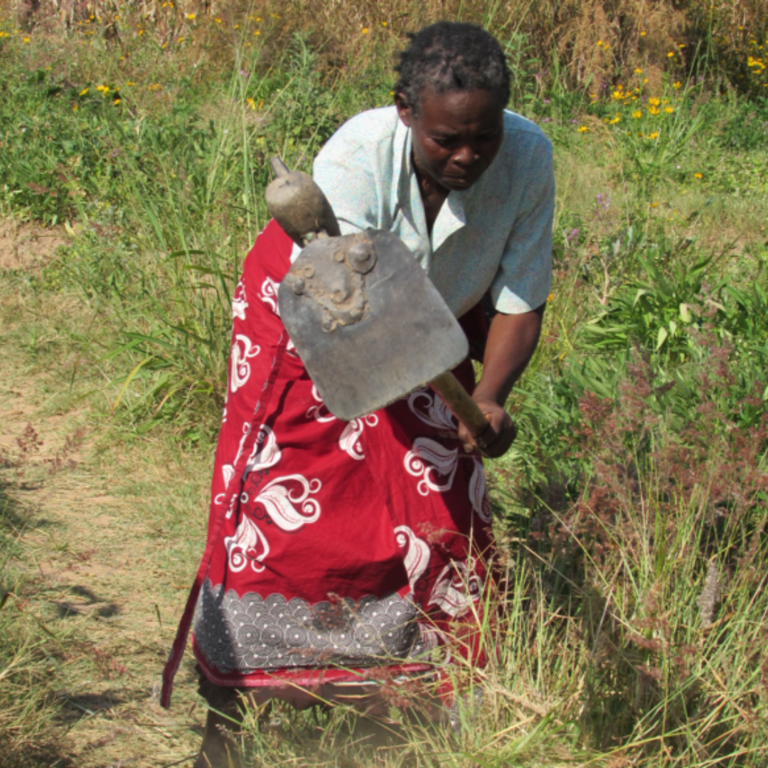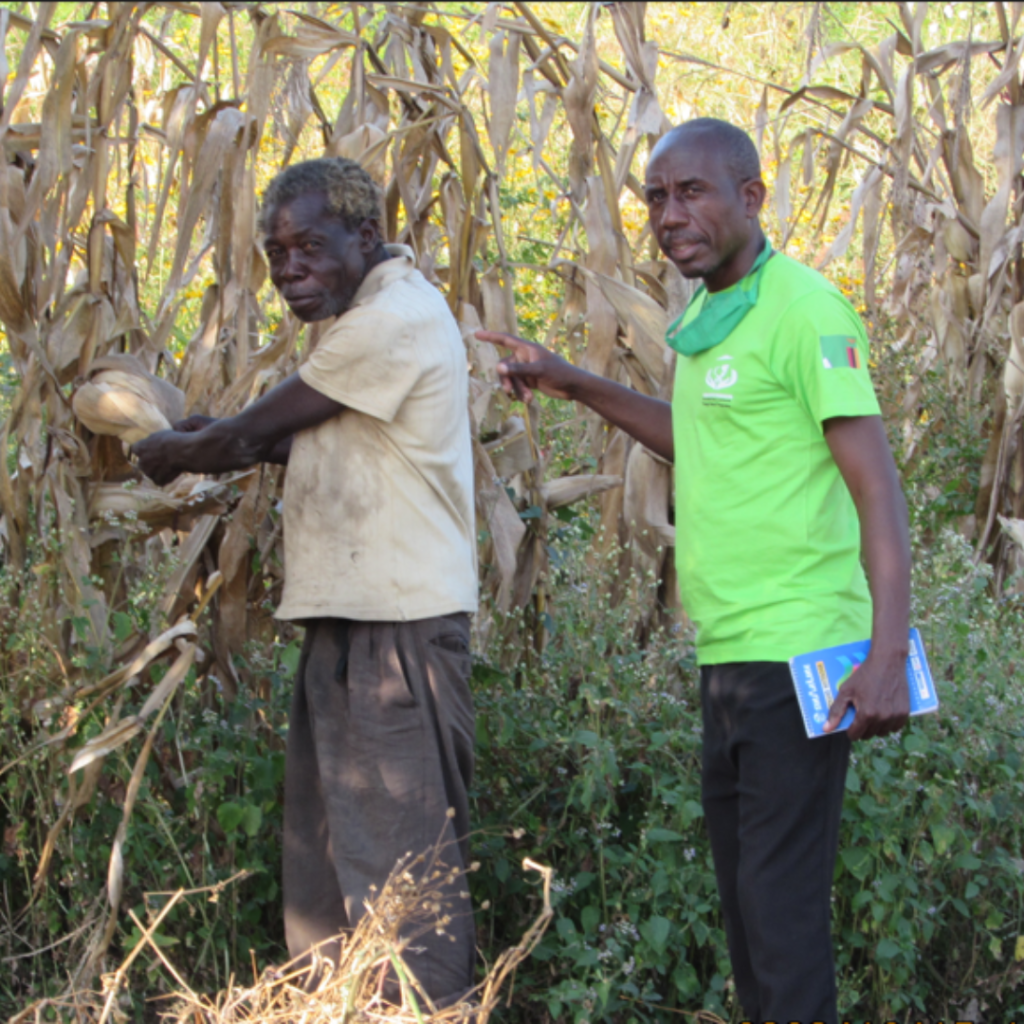Agriculture
Integrated & Sustainable Agriculture
Zambia’s Agricultural sector is key to the development and will remain the engine to drive the economy to greater heights. Agriculture generates between 18-22% of the Gross Domestic Production (GDP) and provides the livelihood for more than 50% of the population.
The agriculture sector is the main source of income and employment in rural areas especially for women who constitutes more than 60% of the total rural population. Unfortunately, many farmers are subsistence farmers who have failed to progress in their farming endeavor due to financial constraints and primitive farming methods. ZRO has introduced programs for the development of sustainable farming methods from the use of Iron Age tools like hoes to technologies that enhance yields for the wellbeing of women and the youth who are taking agriculture as business and as the best way of improving their standards of living.
To reduce poverty and improve the standards of living of the people in rural areas, ZRO has embarked on action programs focused on the increase household food security at all times for an active and health life and the extra to contribute to sustainable industrial development by providing locally produced agro-based raw materials; and increase agricultural exports thereby enhancing the sector’s contribution to the national balance of payments.
Agricultural development: ZRO aims to enhance agricultural productivity and food security by promoting sustainable farming practices, improving irrigation systems, providing access to modern farming techniques, and facilitating market linkages for small-scale farmers.
Self-Help
To promote self-help activities such as sensitization on climate change and distribution of farming inputs, relief food in conjunction with co-operating partners such as donors, religious bodies and the Government of the Republic of Zambia.
Farmer Cooperatives and Community Organizations: Encourage farmers to form cooperatives or community-based organizations to collectively address common challenges, pool resources, and share knowledge and best practices. These platforms can foster collaboration and provide a stronger voice for farmers’ interests
''Nurturing Farms, Erasing Poverty"


To supplement its effort to alleviate poverty levels, The Government of The Republic of Zambia is supporting ZRO’s poverty alleviation programs .
Achievements
- Food security: By implementing sustainable agricultural practices, such as organic farming and permaculture techniques, ZRO has helped communities achieve food security. This includes improving crop yields, diversifying agricultural production, and promoting climate-resilient farming methods.
- Poverty alleviation: Self-help initiatives empower individuals and communities to take charge of their own development. By providing training, resources, and support, we have helped the communities we serve acquire the skills needed to generate income through agriculture. This can lift families out of poverty, improve their standard of living, and create sustainable livelihoods.
- Community empowerment: The formation of cooperatives encourages collective action and cooperation among farmers. By pooling resources, sharing knowledge, and collectively marketing their products, farmers can achieve economies of scale, negotiate better prices, and have a stronger voice in policy advocacy. This promotes community empowerment, social cohesion, and a sense of ownership over the development process.
- Capacity building: Farmer training programs play a crucial role in building the skills and knowledge necessary for self-reliance.
These achievements collectively foster self-reliance, empower communities, promote environmental sustainability, and contribute to the long-term development of agriculture-based economies
Programs
- Agricultural Extension Services: Establishing and strengthening agricultural extension services to provide farmers with training, knowledge, and resources on sustainable farming practices, modern techniques, crop selection, pest management, and soil conservation methods.
- Conservation Agriculture: Promote conservation agriculture techniques such as minimum tillage, crop rotation, and mulching to improve soil health, reduce erosion, and enhance water conservation. This approach helps increase crop yields, improve food security, and reduce the dependency on chemical inputs.
- Agroforestry: Encourage farmers to adopt agroforestry practices by integrating trees and shrubs with agricultural crops. Agroforestry systems can improve soil fertility, provide shade, diversify income sources, and promote sustainable land management.
- Irrigation Systems: Support the establishment and maintenance of small-scale irrigation systems, including drip irrigation and rainwater harvesting techniques, to improve water availability and ensure reliable crop production, especially during dry spells.
- Seed Banks and Improved Access to Seeds: Establish community seed banks to preserve and exchange traditional, climate-resilient seeds. Additionally, promote the use of improved and high-yielding seed varieties that are suitable for local conditions, increasing farmers’ access to quality seeds.
- Livestock Management: Provide training and support for sustainable livestock management practices, including improved animal husbandry, disease control, and proper feed management. Encourage the integration of livestock and crop farming systems for enhanced productivity and nutrient cycling.
- Market Linkages and Value Addition: Facilitate access to markets for farmers by establishing linkages with buyers, processors, and cooperatives. Promote value addition through processing and packaging to increase the income potential for farmers and reduce post-harvest losses.
- Climate-Smart Agriculture: Promote climate-smart agricultural practices, such as agroecology, organic farming, and the use of renewable energy in farming operations. These approaches focus on resilience, resource efficiency, and reducing greenhouse gas emissions.
- Gender and Youth Inclusion: Ensure the active participation of women and youth in sustainable agriculture programs by providing targeted training, access to finance, and opportunities for entrepreneurship. Empowering women and youth can have a transformative impact on poverty reduction and sustainable development.
It is important for the Zambian Relief Organization to collaborate with local communities, government agencies, NGOs, and other stakeholders to implement and monitor these programs effectively. Regular monitoring and evaluation of the initiatives will help assess their impact, identify challenges, and make necessary adjustments for long-term sustainability and poverty reduction






